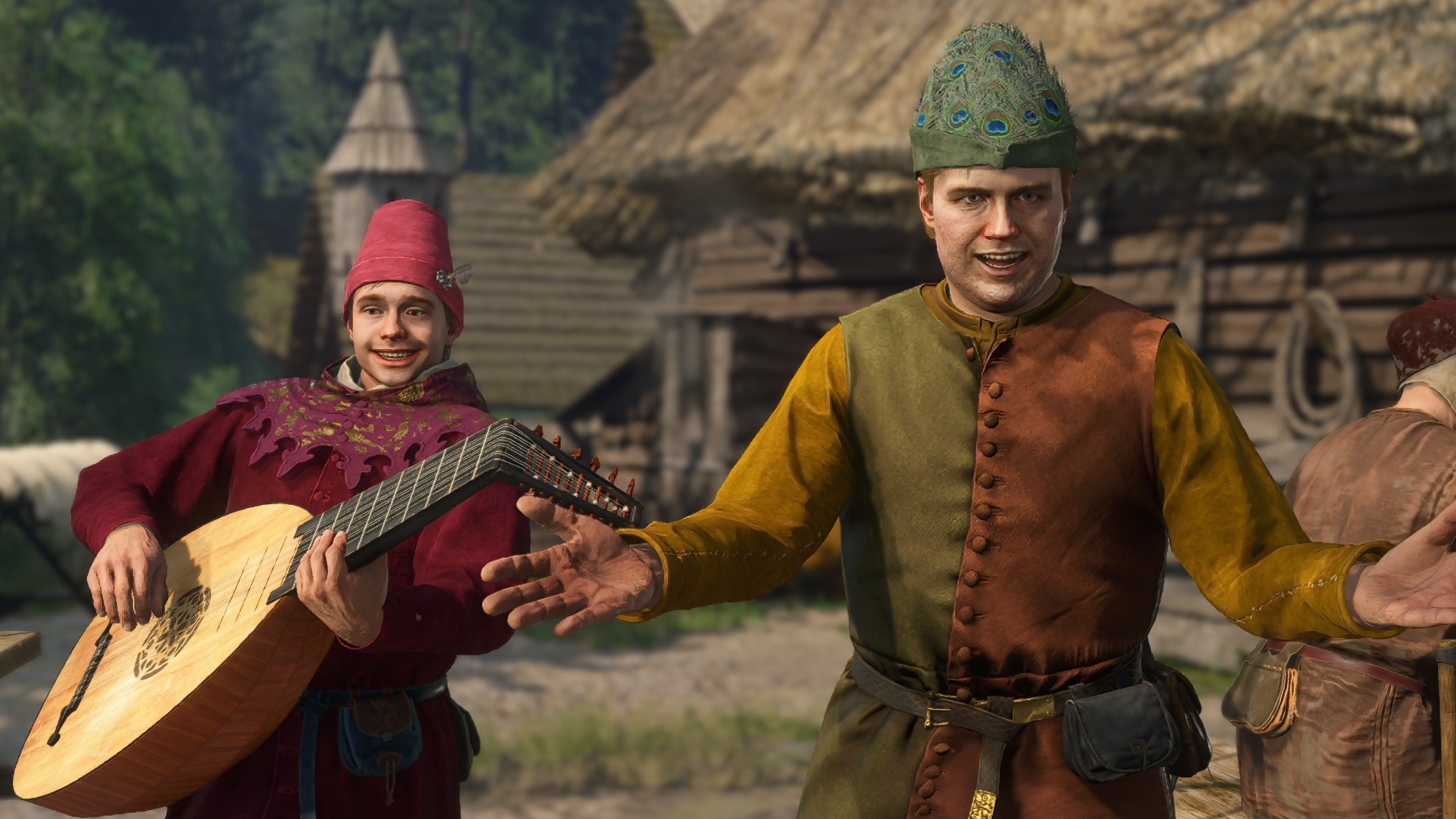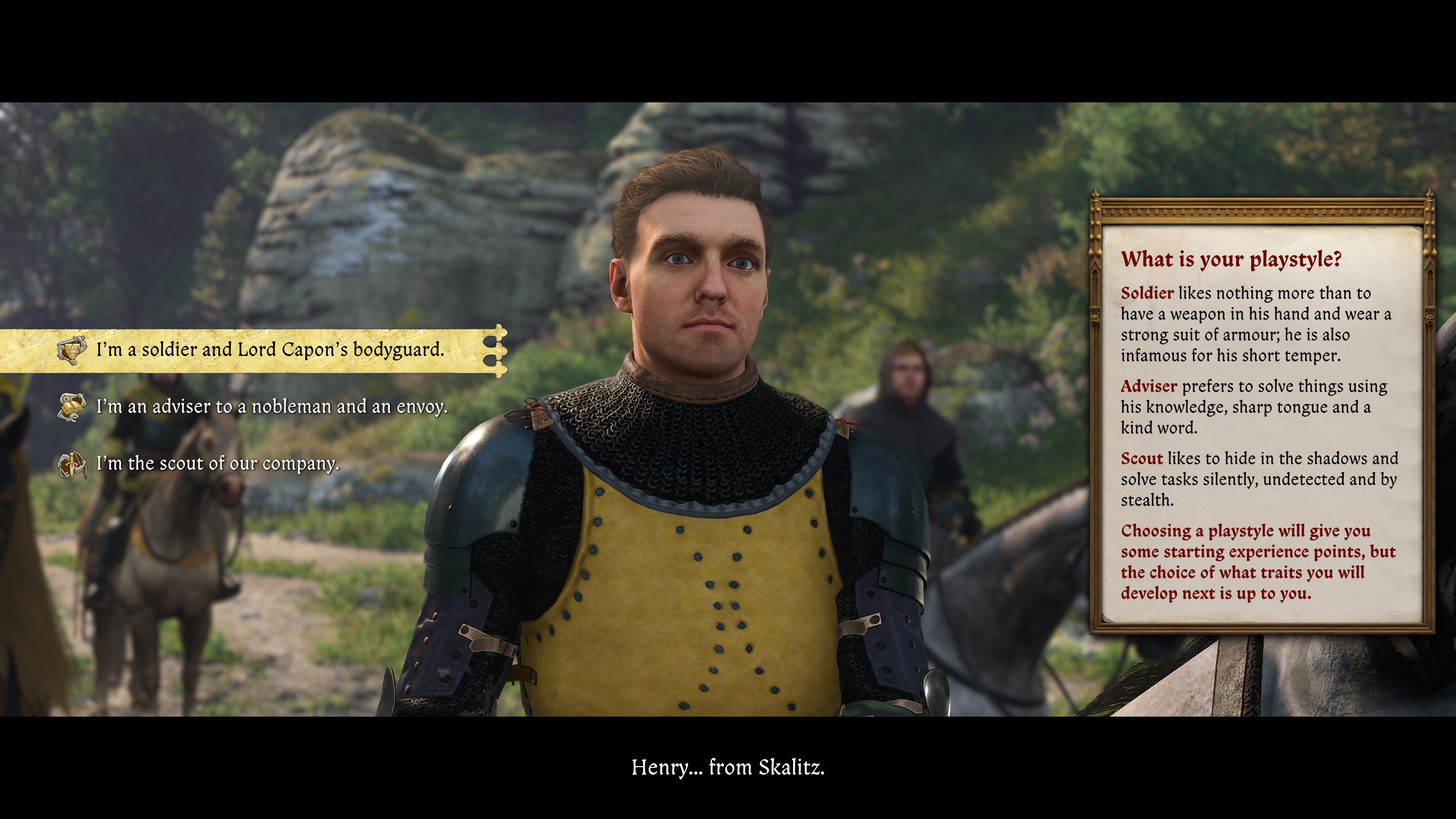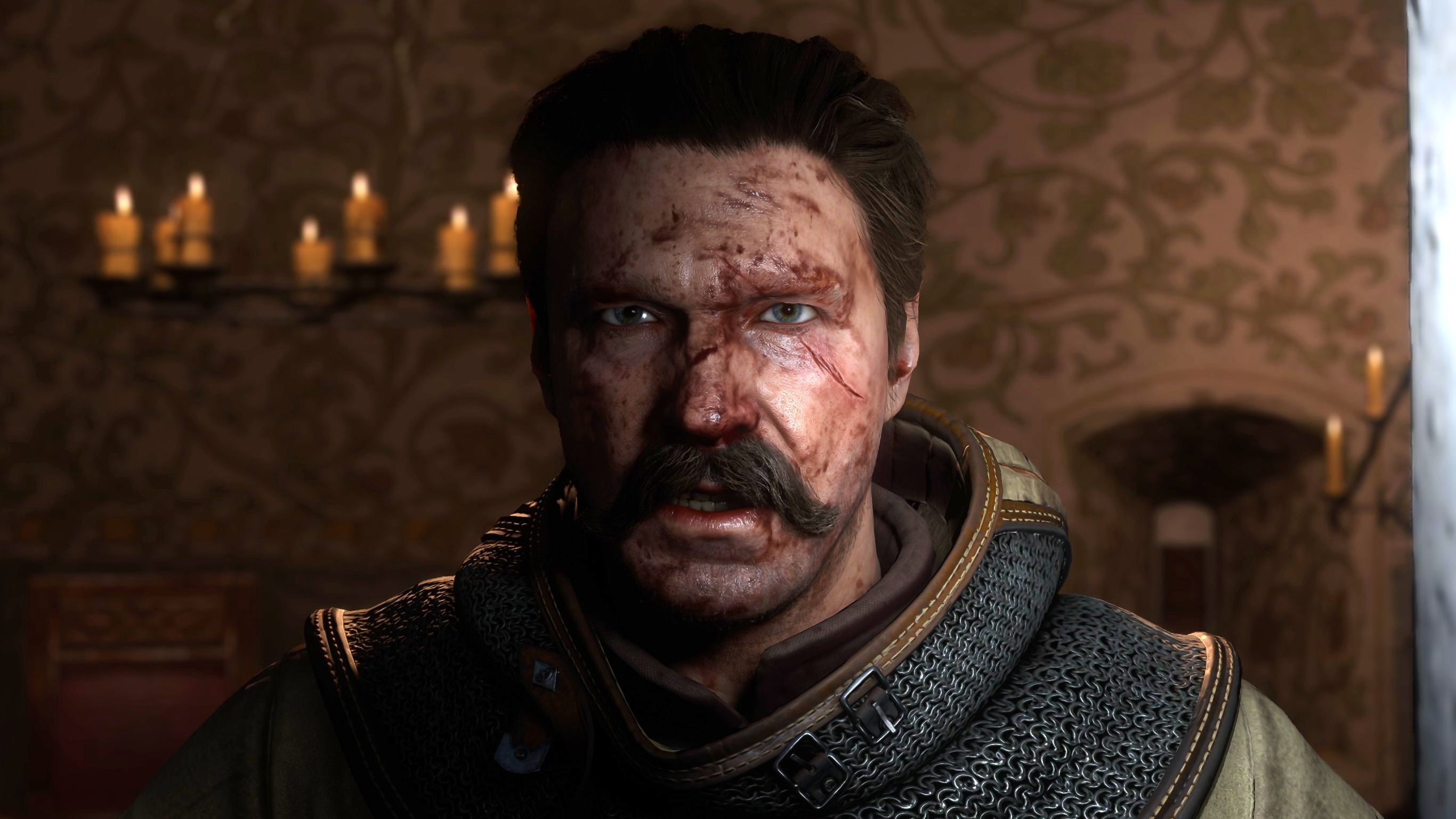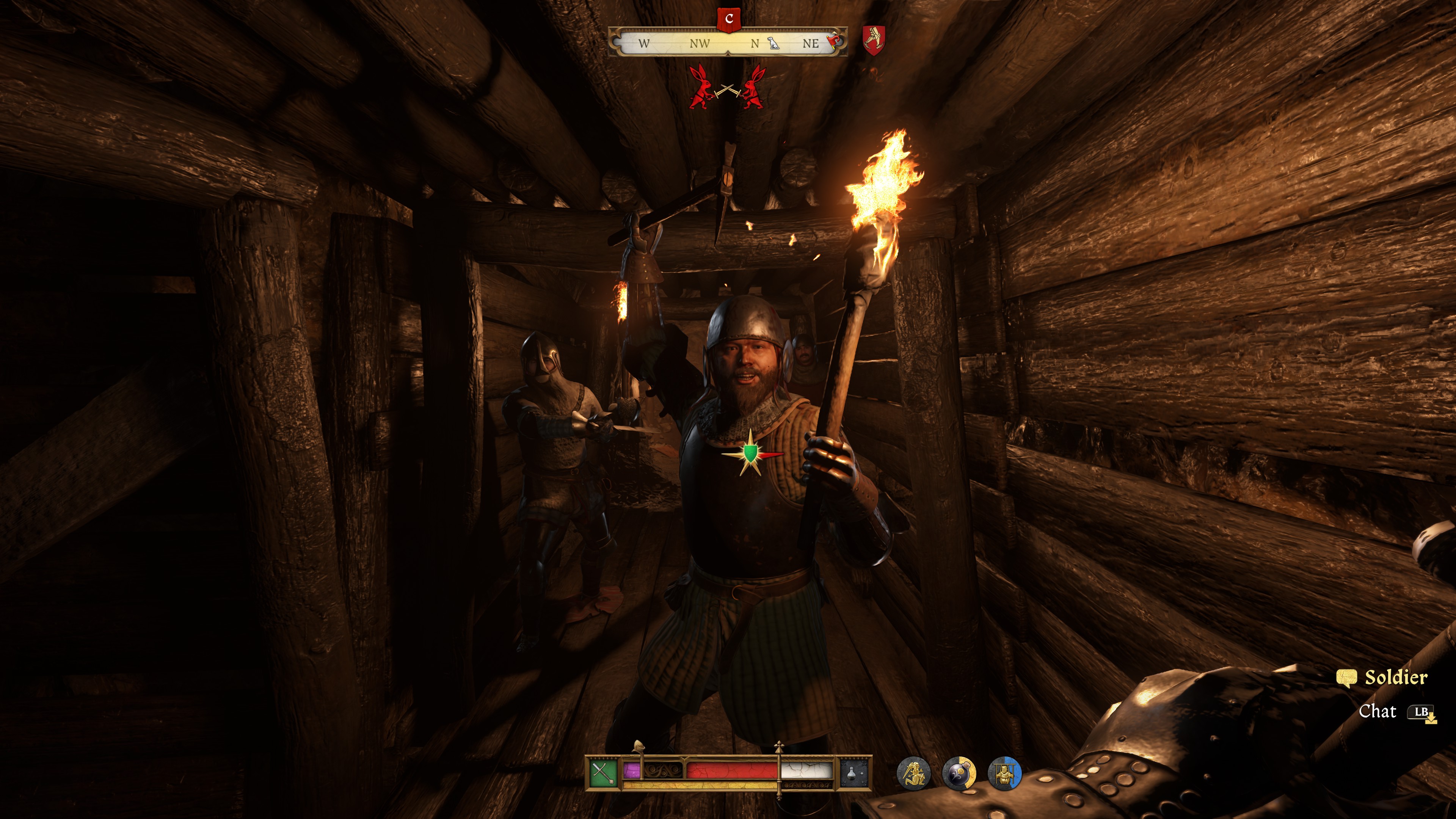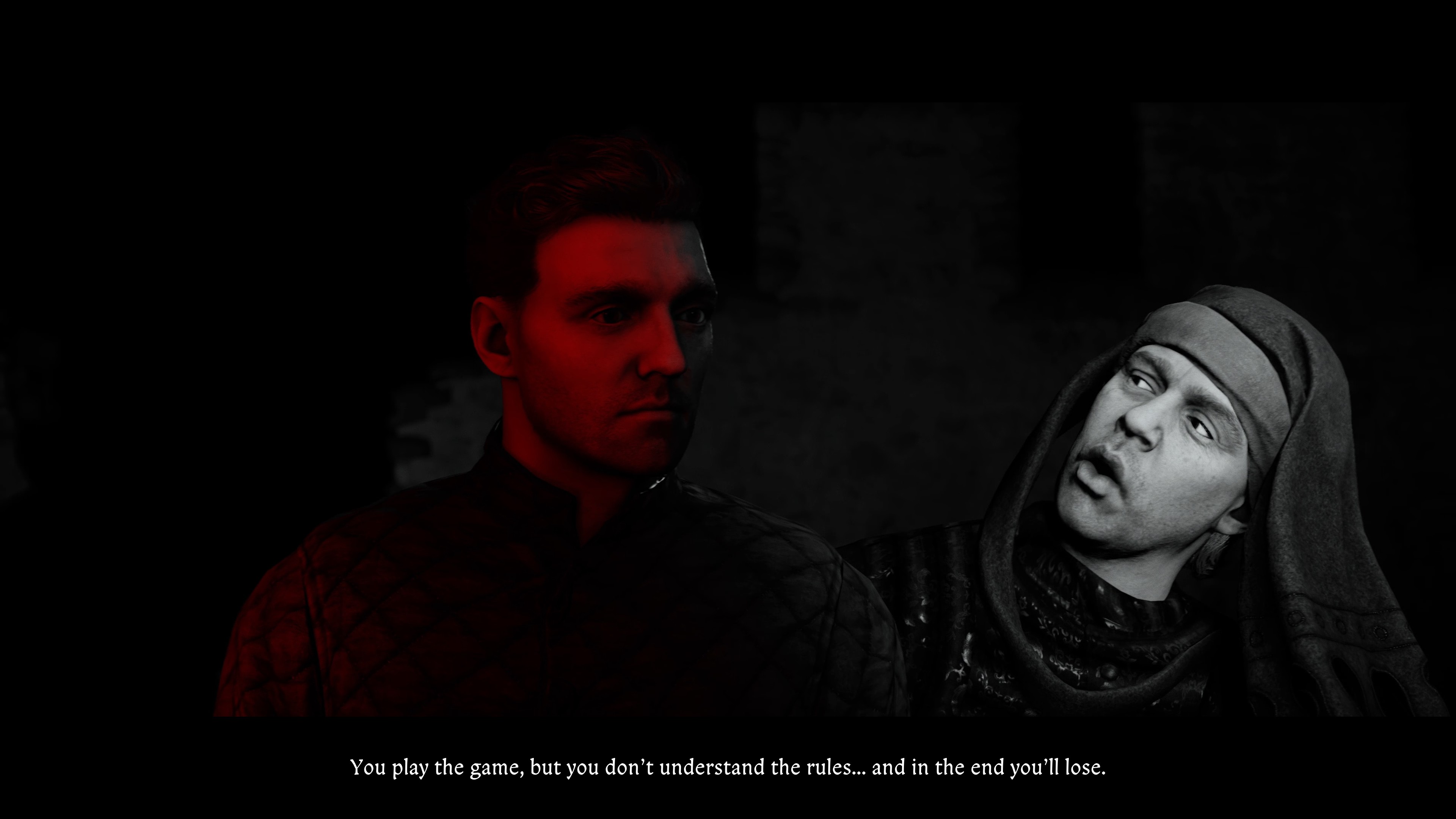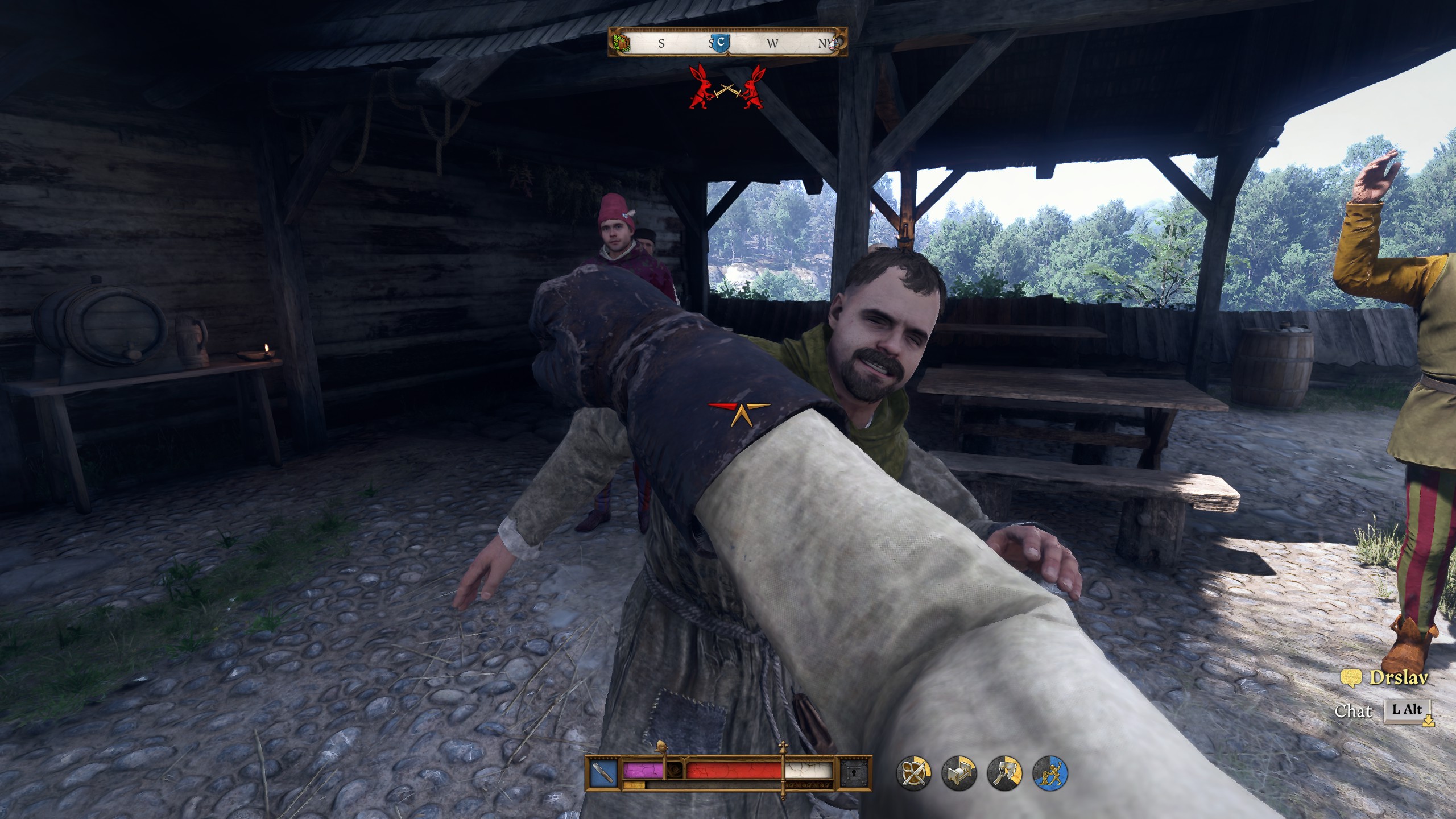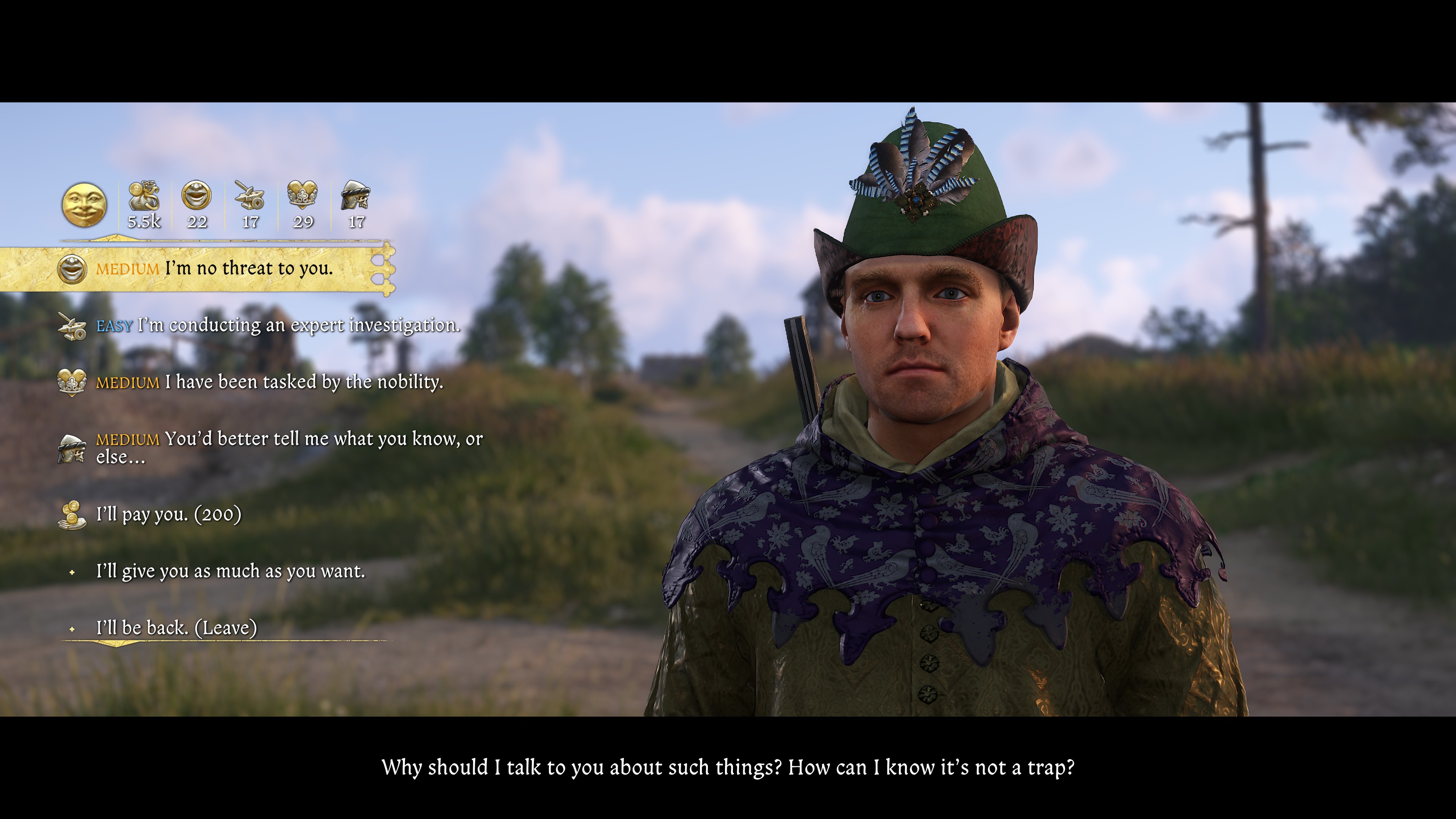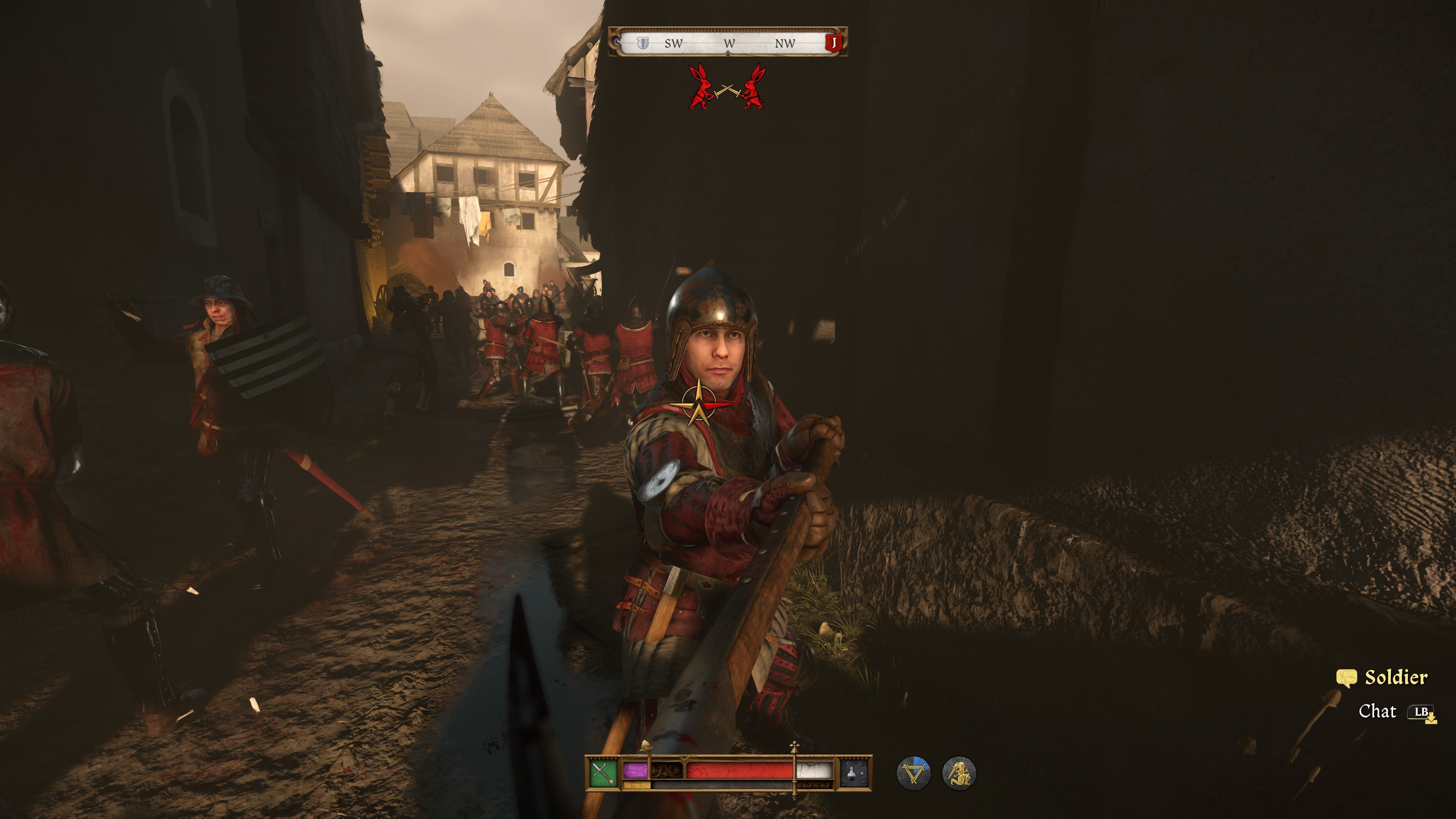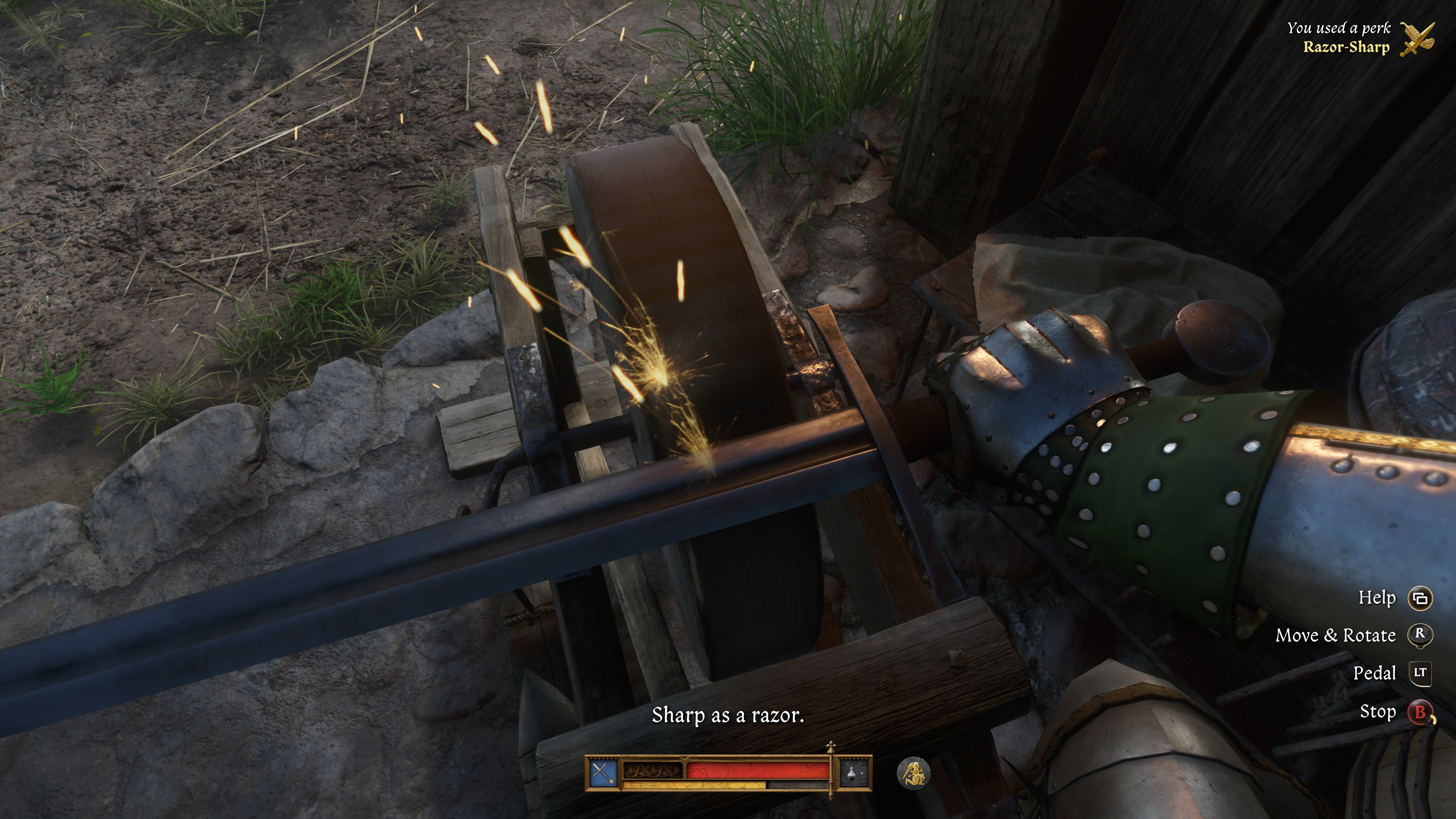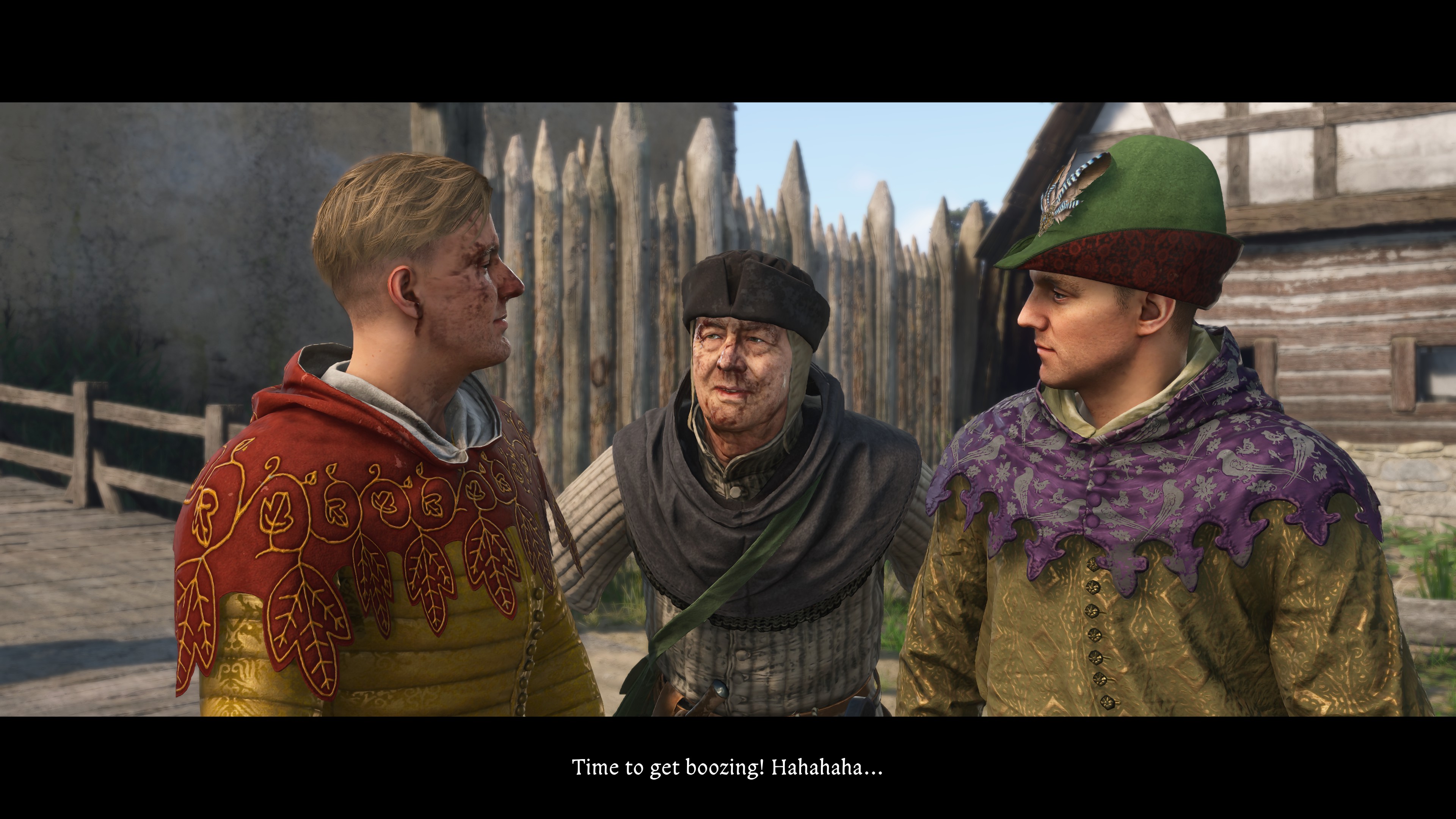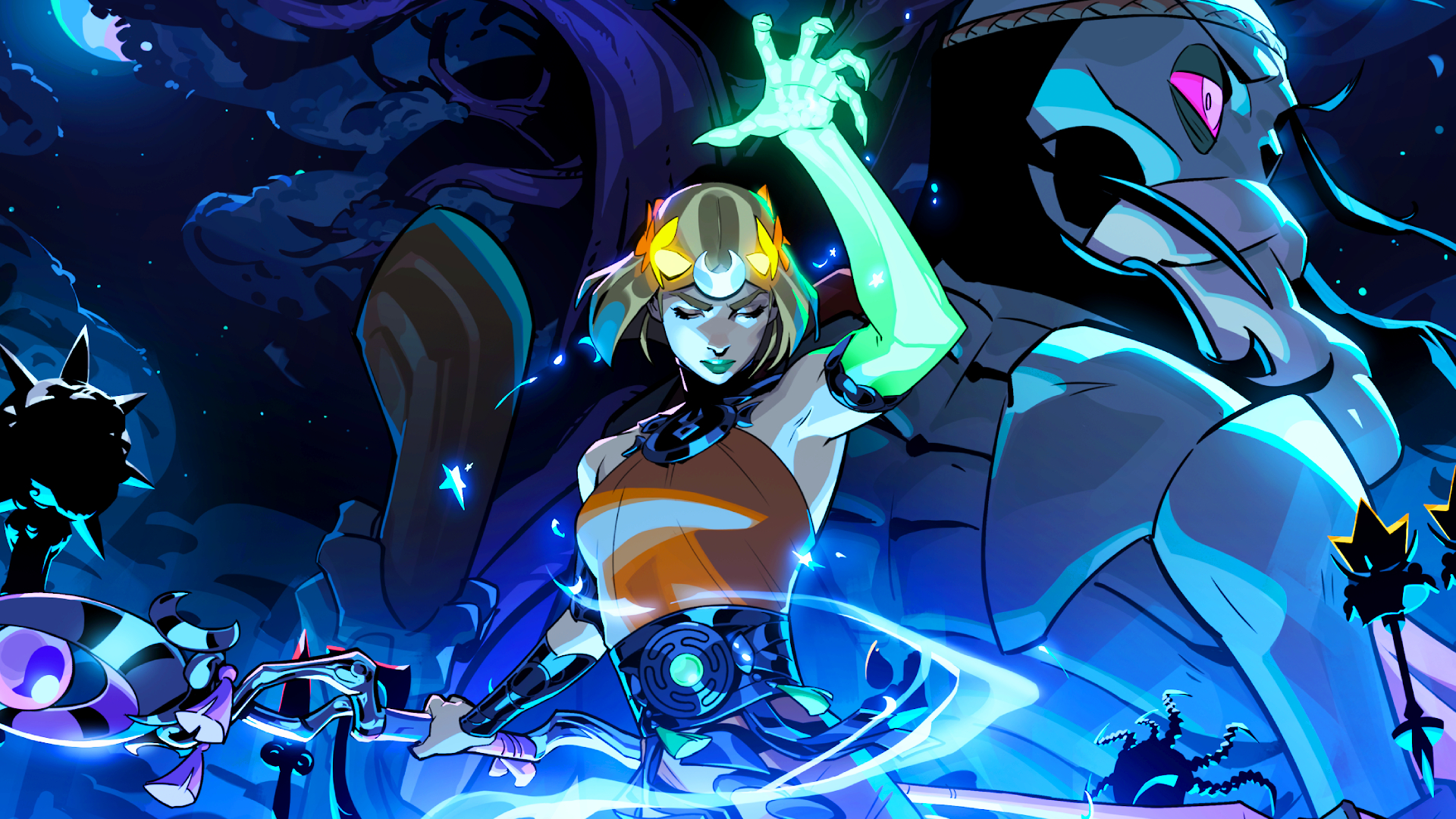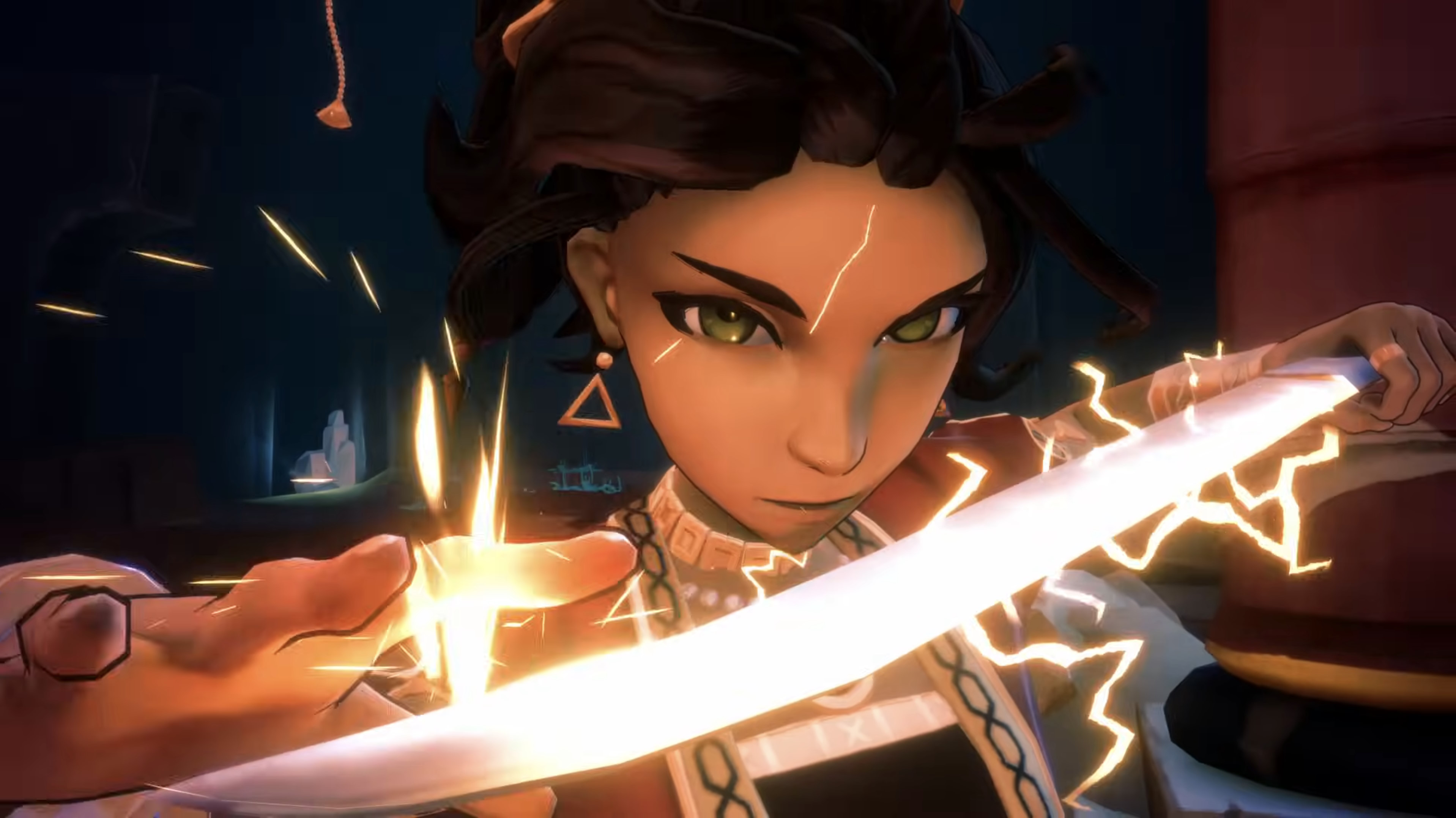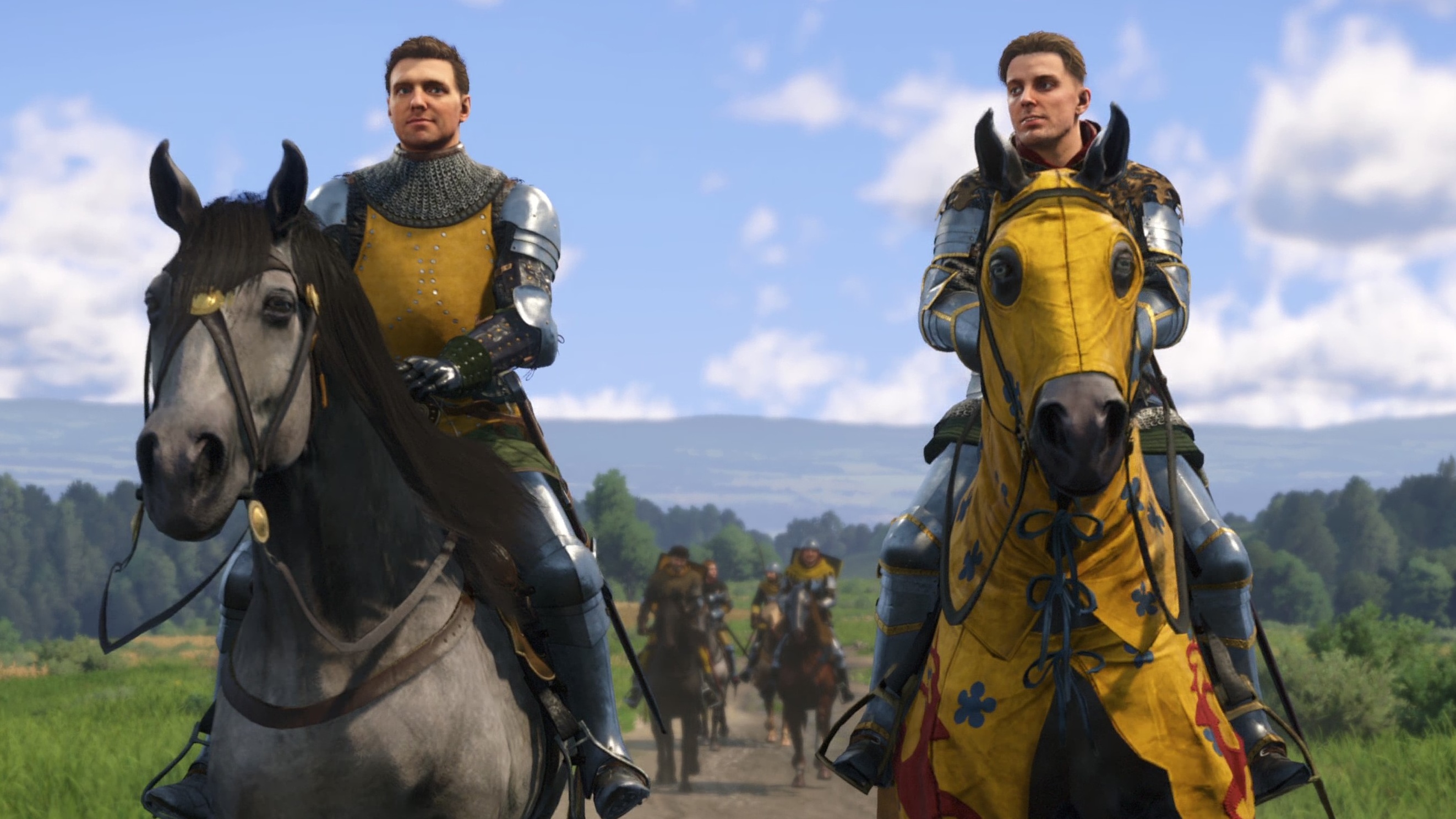
KCD2 is just as bizarre and ambitious as its inspirations. Thank god.
What is it?: A systems-heavy RPG set around the actual historical conflict between King Wenceslas of Bohemia and his abductor and brother, Sigismund.
Expect to pay: $60/£50
Developer: Warhorse Studios
Publisher: Deep Silver
Reviewed on: NVIDIA GeForce RTX 4080, AMD Ryzen 3700x, 32GB RAM, Samsung 970 Plus SSD
Steam Deck: Playable
Link: Official site
Kingdom Come: Deliverance 2 might be the most specific RPG I’ve ever played. Everything from its location, to its era, to its combat, to its clothing feels hyper-tuned, dialled in with precision to suit oddball tastes.
Looking for a sweeping fantasy romp? You won’t find one. Like its predecessor, this is a game whose story springs inevitably from the politics of its time and place: the Kingdom of Bohemia in 1403. Want to mow down your foes by the dozen? Good luck. Combat is a strange dance of positioning both your hands and feet relative to those of your enemies, and charging into the fray even in the late game is liable to get you cut apart. Want to equip a hauberk without first equipping a padded gambeson beneath it? What are you—some kind of moron?
Like I say, oddball tastes, but they happen to match mine exactly, and my only regret after 75 hours or so with KCD2 is that the demands of having to review the thing compelled me to sprint to its endpoint. I would happily have spent another 75 hours getting chivalrous in the Bohemian crownlands. This is a new RPG classic, an instant favourite for me, and a successor in tone and feel to the great mavericks of old—games like The Witcher 1 and 2—ragged edges and all.
Lads on chore
KCD2 follows on directly from the first game. You’re still Henry of Skalitz: blacksmith’s son, noble bastard, orphaned when mercenaries attacked your town, and companion to Lord Hans Capon of Pirkstein. Bohemia is in the grip of war, torn between supporters of the abducted King Wenceslas of Bohemia and supporters of his abductor and brother, Sigismund.
Capon’s lordly guardians are Wenceslas supporters, and have dispatched him, Henry, and a retinue of protectors to deliver a letter to Otto von Bergow, one of the foremost supporters of Sigismund, with an eye to putting an end to the whole internecine thing. It all goes really, really well and everyone gets to go home.
Oh no, wait, sorry, it all goes to hell pretty much immediately, and before long Henry and Hans are AWOL on a quest that sees them jumping through all the mad loopholes and imbrications of 15th-century Central European politics, hopping from faction to faction in a plot that gets tense and intriguing, particularly if you’re the kind of dork who will get very excited by the presence of historical figures like Jan Zizka and Sigismund.
PCG hardware lord Nick Evanson has been putting Bohemia through the wringer in his Kingdom Come: Deliverance 2 performance analysis, running tests across all sorts of hardware configurations, including handheld PCs.
Their mission doesn’t just take them through the haute monde of medieval Bohemia; it brings them into contact with the periphery of society, too. Jewish people, Roma, even a roaming Muslim scholar pop up to offer a glimpse into life outside the velvet confines of the imperial court, and while their tales aren’t always masterful, they always feel well-meaning.
All in all, it’s a period with great fodder for anyone who likes sinking their teeth into meaty political plots, and presents plenty of opportunities to chuck difficult choices and moral compromises at you, which the game does semi-regularly. But where the Euro-RPGs of yore (and, really, I’m thinking of CDPR here), delighted in visiting you with the consequences of your choices, it does sometimes feel like KCD2 pulls its punches on that front. A choice that might, for instance, seem to be about choosing which of your companions dies might resolve with a handwave: Actually, all the named characters are fine, but boy we had you there for a second, eh? It’s a lack of sadism that shears some choices of weight.
But the politics are knotty and good fun, and really, the gold thread that ties the whole narrative together is the relationship between Henry and Capon. Henry’s a plucky, likeable lad with a West Country accent you simply don’t give to a videogame protagonist unless you are possessed of an almost religious vision, while plummy Lord Capon is realised incredibly well. It helps that, in contradistinction to most of the game’s secondary cast—whose voice acting ranges from ‘acceptable’ to ‘inexplicable’—they’re both portrayed with plenty of range and emotion.
But also, Capon is so believably of his time and place, with all the obnoxiousness of a child raised from birth to think he’s inherently better than the common rabble, but under the muck of aristocracy a genuinely decent lad. His development and the development of his relationship with Henry are very well done indeed.
Feudal systems
It’s the game’s systemic ambitions that really elevate it, though. There are times when Warhorse’s simulation of a medieval world approaches Stalker-levels of zeal. Stole something from someone’s house without being spotted? All well and good, but if someone spied you hanging around there they’ll still put two and two together and report you to the guards. I once got chased out of a fortress because I’d absent-mindedly equipped a stolen ring and walked past the schmuck I took it from.
It’s that kind of world: A world of rules, a world that feels interested in itself for its own sake, and that feels to some extent like it happens independent of you, the player.
By the end of the game, when you’re teeming with perks and fancy gear, you’ll be a rambling Bohemian Cuisinart turning all your foes to shreds, but even this feels like a more earned and systems-driven process than it does in your average Skyrim-inspired RPG. You’re not just inevitably climbing a levelling power curve, you’re feeling out the edges of the game—what’s possible, what’s impossible, what’s expected from you.
By the time you become a whirlwind of death it’s partially down to all your skill points, sure, but it’s also a product of you making sense of the game’s angle-based combat system, its combos, knowing how to manoeuvre and approach foes, and what the deficiencies of the AI are that let you chalk up a few stealth or ranged kills before the fight kicks off properly.
By the end of the game, when you’re teeming with perks and fancy gear, you’ll be a rambling Bohemian Cuisinart turning all your foes to shreds
But even better, it’s a world that’s happy to let you cheat your way to the top. It obeys its own rules to your detriment and your advantage. Seen an impossibly expensive set of armour in a shop? KCD2 will let you break in after dark and pull it right out of the storekeep’s stockroom (just don’t wear it in front of him). Want to take advantage of every skill-trainer on the map to buff up your skills way ahead of the endgame? The money you pay for their training goes right into their eminently pickpocketable inventory. It’s a game that usually answers the question ‘Wait, couldn’t I just…?’ with a resounding ‘Yes, absolutely.’
And then, if you’re like me, you spend about five hours robbing a single castle of all its incredibly valuable loot, armour, weapons, and clothing. It has no problem letting you feel like you’ve gotten one over on it. In other words, it reminded me of Morrowind, the highest compliment I can give a videogame.
Not that you have to become a criminal, of course. You’re just as likely to stumble across a skirmish—or its aftermath—in the road as you are to see an enticingly robbable armourer. No one will object to you yanking off a dead man’s boots, giving you easy access to what would, in another videogame, be much higher-level gear, and all because you happened to be in the right place at the right time.
It’s all a continuation of the philosophy of the first game, of course, but where I remember hearing horror stories of bugs and technical weirdness on KCD1’s launch, the second game has been pretty bug-free in my playing. My performance has been good, I’ve not run into crashes, and all its ambitious systems seem truly to work, discounting a few oddities and, well, a frankly huge number of typos in the game’s subtitles and menus, which I hope get patched promptly.
Gloria mundi
Bohemia, it turns out, is large. KCD2 features two alarmingly sizable maps stuffed to high heaven with things to do. It’s the kind of pitch that could easily get tedious, like clearing all The Witcher 3’s question marks—but so long as you approach them without a fanatically completionist fervour are just a big grab-bag of things to do: activities and distractions that root you in the world and act as yet more means to give yourself an advantage.
There’s hunting, bandit camps, graves to dig up, side quests to trigger, all the things you expect, along with blacksmithing, alchemy, dice (all the best games have dice), treasure maps, and who-knows-what else. So far as I can tell, medieval Czechia is one big freshers’ fair full of exciting new hobbies to take up, and getting good at any of them hands you new skill and perk points (plus new weapons and potions, from blacksmithing and alchemy) to use in your daily pursuit of slaughtering your enemies.
They’re also, naturally, intensely involved. No Fable-2-style blacksmithing rhythm game here; you’ll heat your metal, hammer it into shape, quench it when it’s done and you’ll like it. Alchemy is even more absurdly elaborate, which is something I admire conceptually but which doesn’t quite work in practice. I never really figured it out, and every potion-brewing sesh ended with Henry muttering about how I’d screwed it up, though you still get a slightly worse potion for your trouble.
But the point is that, even over its ample runtime, KCD2 manages to maintain a sense of momentum and unfurling between all its stuff to do and the zigs and zags of its plot. You’re a soldier, now a spy, now a gambler, now a blacksmith. The arc of its medieval life simulator is long and varied. About 50 hours in, the game suddenly sprung a whole Thieves’ Guild questline on me to finally make use of those stealth skills I’d been underusing for the rest of my playthrough.
Signed, sealed, delivered
KCD2 feels a bit miraculous: a ludicrously ambitious and peculiar thing that somehow fulfills its ambition and peculiarity, managing to hit the highs Warhorse aimed for in the first game but perhaps fell just short of.
It feels tailor-made for a certain brand of systems-loving sicko—the kind of person who still gets starry-eyed about Stalker and Morrowind—and manages to actually make good on their (or at least my) nostalgic yearning for those halcyon games of old.
